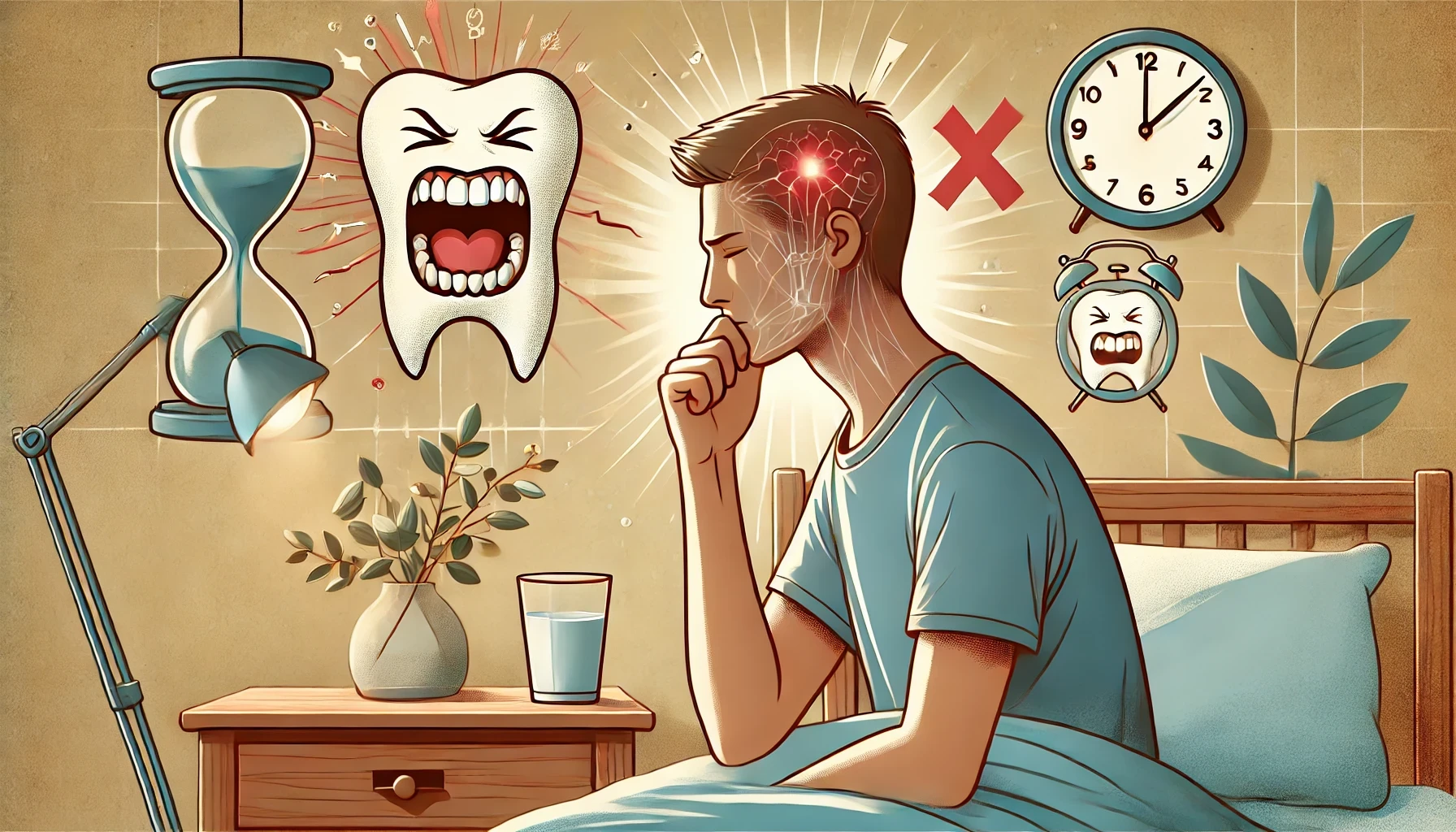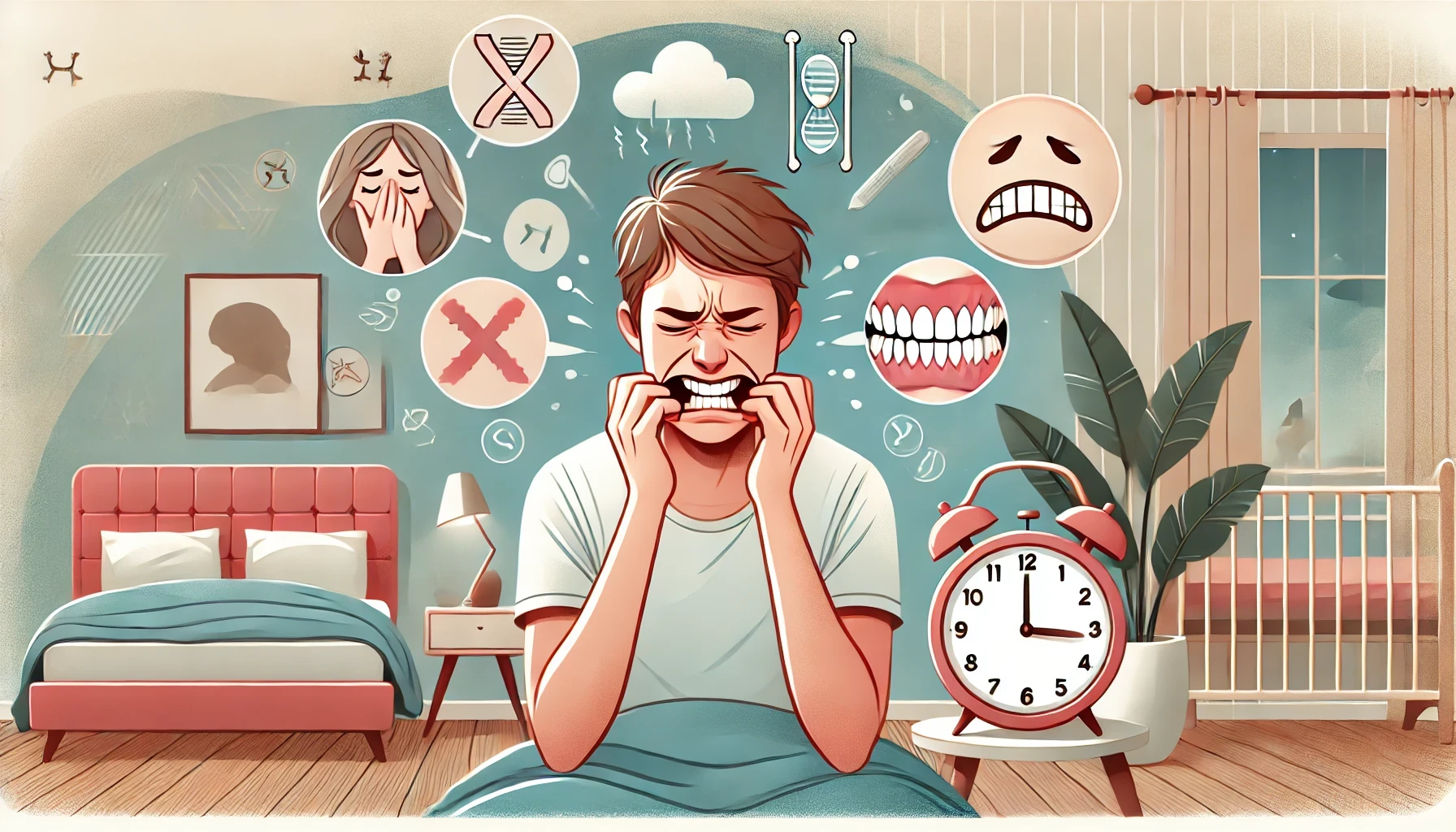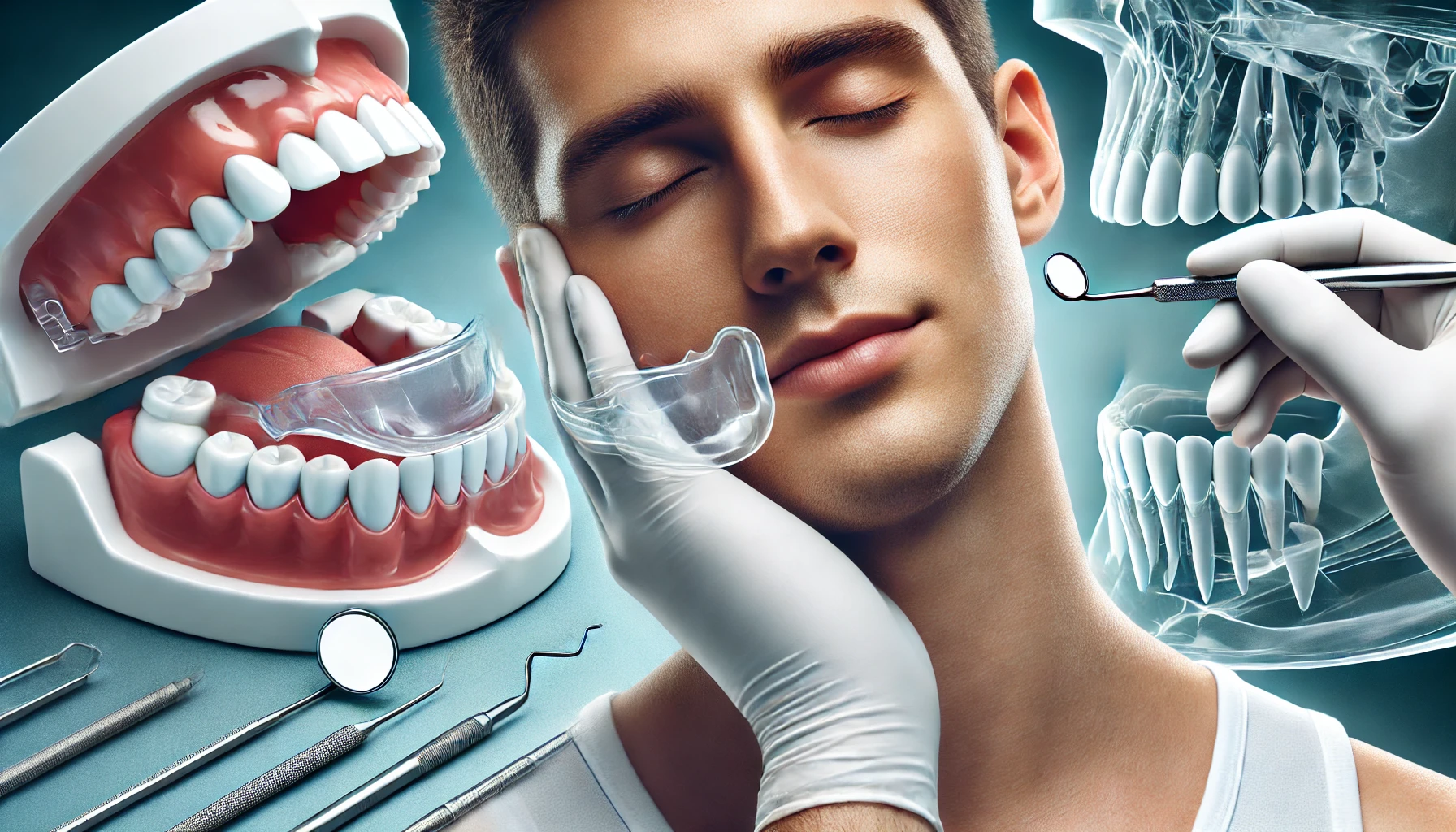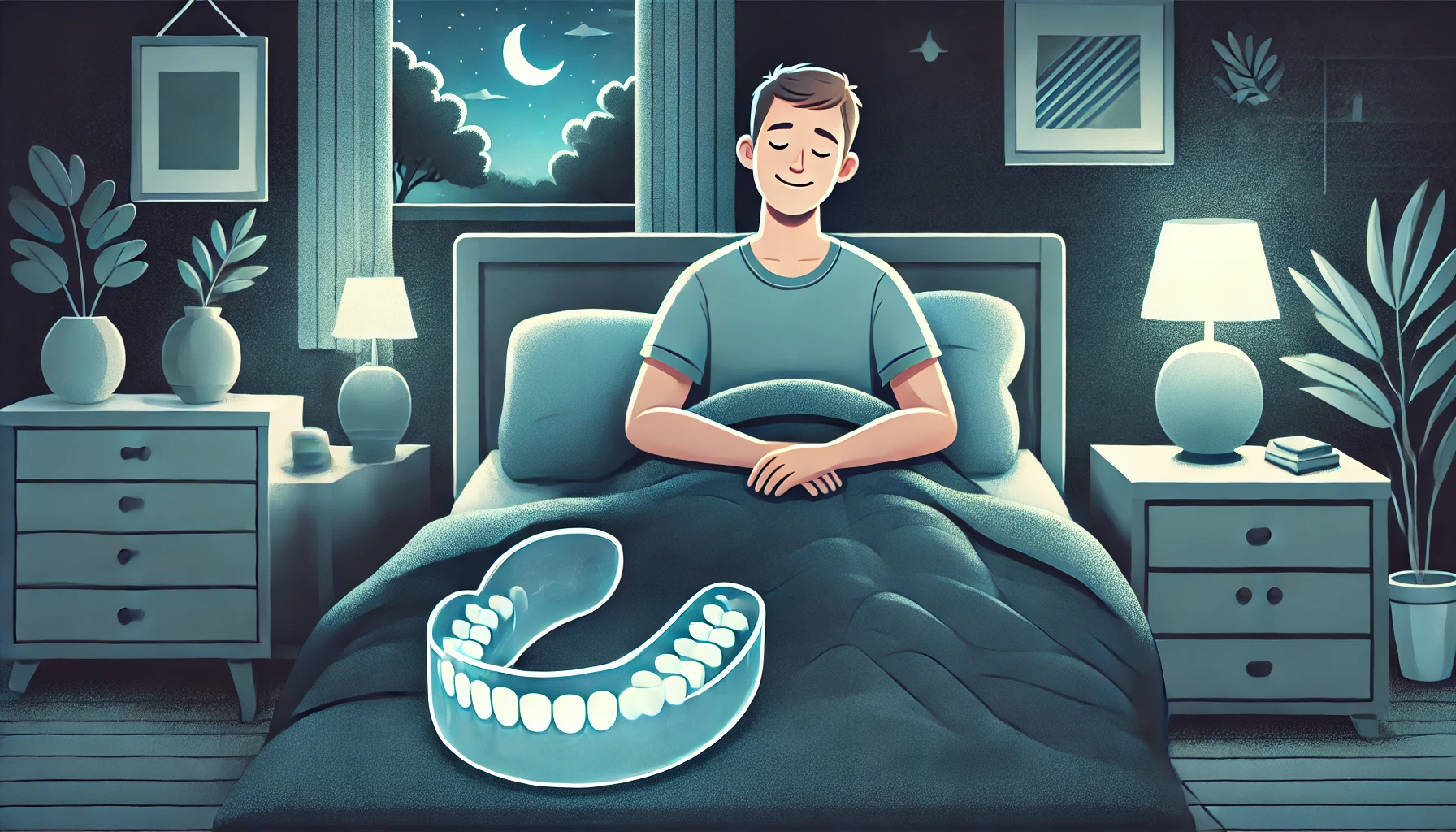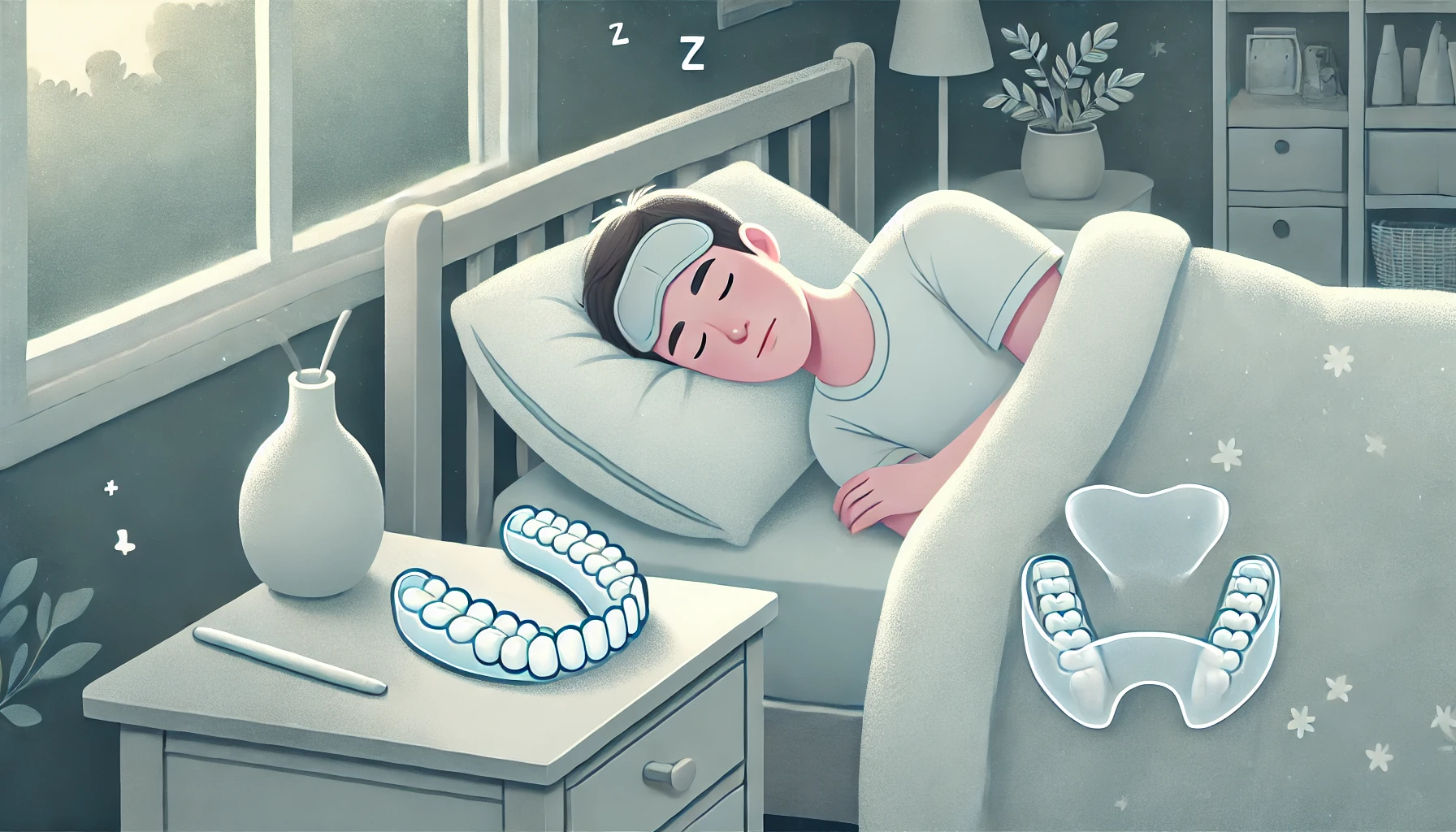Teeth grinding, also known as bruxism, is a common condition where people clench or grind their teeth, often during sleep.
While occasional grinding may not cause harm, frequent bruxism can lead to severe dental issues and discomfort, including jaw pain and tooth damage.
Understanding the causes, symptoms, and treatment options is essential to protect your teeth and maintain good oral health.
What causes teeth grinding and why is it harmful?
Bruxism can be caused by a combination of physical, psychological, and genetic factors. Stress and anxiety are common psychological triggers, leading individuals to unconsciously clench their teeth as a coping mechanism.
Physical factors like sleep disorders, an abnormal bite, or missing teeth can also contribute to grinding. In some cases, it might run in families, suggesting a genetic component. The frequent grinding of teeth wears down the enamel, increases sensitivity, and can lead to fractures or severe tooth damage.
Additionally, chronic grinding may result in jaw disorders, muscle pain, and headaches, significantly impacting daily life and overall well-being. Addressing the root cause is crucial for effective management.
Symptoms of teeth grinding you shouldn’t ignore
Most people are unaware that they grind their teeth, as it often occurs during sleep. However, some common symptoms can indicate bruxism, including:
- Headaches or earaches: The forceful grinding and clenching of the jaw can cause tension headaches or pain in the ears.
- Jaw pain or stiffness: Grinding puts excessive pressure on the jaw muscles, leading to discomfort and stiffness.
- Tooth sensitivity: As enamel wears down, teeth become more sensitive to hot and cold temperatures.
- Worn-down teeth: Teeth grinding can cause visible wear on the biting surfaces of teeth or fractures in severe cases.
If you experience these symptoms regularly, it’s essential to consult a dentist for proper diagnosis and treatment.
Treatments for teeth grinding
Fortunately, there are various effective treatments available to manage bruxism and prevent further damage to teeth. Based on the underlying cause, your dentist may recommend one or more of the following options:
- Mouthguards: Custom-made mouthguards can protect teeth from grinding during sleep.
- Stress management techniques: Learning relaxation techniques such as meditation or deep breathing can reduce stress, minimizing the frequency of grinding.
- Orthodontic treatment: Correcting an abnormal bite with orthodontic treatment can alleviate pressure on the jaw and prevent grinding.
- Medication: In some cases, muscle relaxants or anti-anxiety medication may be prescribed to manage bruxism symptoms.
It’s also crucial to maintain good oral hygiene and visit the dentist regularly for check-ups. In severe cases, dental procedures like crowns or bridges may be required to restore damaged teeth.
How to prevent teeth grinding at night
Preventing teeth grinding at night involves adopting strategies to reduce stress and improve sleep quality. Creating a relaxing bedtime routine, such as taking a warm bath or practicing mindfulness, can help ease nighttime grinding.
Additionally, avoiding caffeine and alcohol before bed can minimize disturbances to sleep patterns. Ensuring a comfortable sleeping environment by maintaining a cool, dark room and using supportive pillows may also help.
If stress is a trigger, incorporating regular exercise into your daily routine and seeking professional help for stress management can be beneficial. Consulting a dentist for a nighttime mouthguard is also a practical preventive measure.
Here’s a breakdown of the key causes, symptoms, and treatments for teeth grinding:
- Stress and anxiety: High levels of stress or anxiety can cause involuntary clenching and grinding, especially at night.
- Sleep disorders: Conditions like sleep apnea can contribute to bruxism, as can poor sleep quality.
- Misaligned teeth or bite: Improper alignment of the teeth or jaws can trigger grinding as the body tries to correct the issue.
- Jaw pain: Teeth grinding can cause soreness in the jaw muscles, neck pain, and even headaches.
- Mouth guards: A guard or splint fitted by a dental professional can prevent further damage and alleviate symptoms.
Summary
Teeth grinding, or bruxism, is often caused by stress, sleep disorders, or misaligned teeth and can lead to various dental problems. Common symptoms include jaw pain, headaches, and worn-down teeth.
Treatments range from stress management and lifestyle changes to using a custom-fitted guard to protect your teeth. Identifying the root cause and treating it early can prevent long-term damage and improve your quality of life.
Questions and Answers
What causes teeth grinding?
Bruxism is often caused by stress, anxiety, sleep disorders, or misalignment of the teeth and jaw.
What are the symptoms of teeth grinding?
Symptoms include jaw soreness, headaches, worn-down teeth, and trouble sleeping.
How can a dental guard help with teeth grinding?
A custom-fitted guard protects your teeth from the effects of grinding by providing a cushioning layer between the upper and lower teeth.
Can stress cause bruxism?
Yes, stress is one of the leading causes of bruxism, especially during sleep.
Is there a permanent cure for teeth grinding?
There is no one-size-fits-all cure, but treatments like mouth guards, stress management, and dental adjustments can significantly reduce symptoms.
Can teeth grinding cause serious damage to teeth?
Yes, long-term bruxism can lead to worn-down teeth, fractures, and even tooth loss if not treated.
How is teeth grinding diagnosed?
A dentist can diagnose bruxism during a check-up by examining your teeth for signs of wear or by mer discussing symptoms like jaw pain.
Can lifestyle changes reduce teeth grinding?
Yes, reducing stress, improving sleep quality, and avoiding caffeine or alcohol before bed can help minimize grinding.
What are the long-term effects of untreated bruxism?
Untreated bruxism can lead to chronic jaw pain, damaged teeth, and even temporomandibular joint dentistry (TMJ) disorders.
Is bruxism common in children?
Yes, teeth grinding is common in children, but it often resolves as they grow older.


